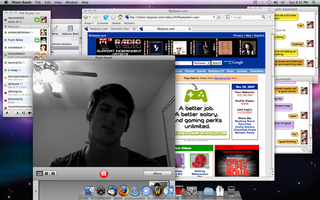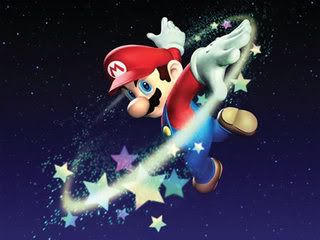Stolen from another blog, originally from the lead story in the Nov. 3rd edition of The Economist.

A religious fanatic goes overseas to fight for his God and then returns home to attempt a bloody act of terrorism. As Britons celebrate the capture of Guy Fawkes, a Catholic jihadist who attempted to blow up the Houses of Parliament in 1605, they might reflect how dismally modern the Gunpowder Plot and Europe's wars of religion now seem in 2007.
Back in the 20th century, most Western politicans and intellectuals (and even some clerics) assumed religion was becoming marginal to public life; faith was largely treated as an irrelevance in foreign policy. Symptomatically, State Department diaries ignored Muslim holidays until the 1990s. In the 21st century, by contrast, religion is playing a central role. From Nigeria to Sri Lanka, from Chechnya to Bagdad, people are being slain in God's name; and money and volunteers are pouring into these religions. Once again, one of the world's great religions has a bloody divide (this time it is Sunnis and Shias, not Catholics and Protestants). And once again, zealotry seems all too relevant to foreign policy.
It does not stop there. Outside Western Europe, religion has forced itself dramatically into the public square. In 1960 John Kennedy pleaded with Americans to treat his Catholicism as irrelevant; now a born-again Christian sits in the White House and his most likely Democrat replacement wants voters to know she prays. An Islamist party rules once-secular Turkey; Hindu nationalists may return to power in India's next election; even more children in Israel and Palestine are attending religious schools that tell them that God granted them the whole Holy Land. On present trends, China, the world's largest Communist dictatorship, will also become the world's largest Christian country-- and perhaps the largest Muslim one too. President Mahmoud Ahmadinejad of Iran, not usually a reliable authority on current affairs, got it right in an open letter to George Bush: "Whether we like it or not," he wrote, "the world is gravitating toward faith in the Almightly."
How frightening is this prospect? The idea that religion has "re-emerged" in pubic life is to some extent an illusion. It never really went away-- certainly not to the extend that French politicans and American college professors imagined. Its new power is mostly the consequence of two changes. The first is the failure of secular creeds; religion's political comeback began in the 1970s, when faith in government everywhere was crumbling. Second, although some theocracies survive in the Islamic world, religion has returned to the stage as a much more democratic, individualistic affair; a bottom-up marketing success, suprisingly in tune with globalisation. Secularism was not as modern as many intellectuals hoped, but pluralism is. Free up religion and ardent believers and ardent atheists both do well.
From a classical liberal point of view, this multiplicity of sects is a good thing. Freedom of conscience is an axiom of liberal thought. If man is, after all, a theotropic beast, inclined to believe in a hereafter, it is surely better that he choses his own faith, rather than follow one his government orders. But this also makes religion a politically difficult force to deal with. In domestic policy, adults who choose to become Pentecostals, Orthodox Jews or Muslim fundamentalists are far less likely to forget those beliefs when it comes to the ballot box. The "culture wars" that America has grown used to may become a global phenomenon. We can expect fierce battles over science, in particular.
Abroad, yes, there is a chance of a full-blown war of religion between states. A conflagration between Iran and Israel would, alas, be seen as a faith-based conflict by millions; so would a war between India and Pakistan. But compared with Guy Fawkes's time, when wars sprang from monarchs throwing their military might at other monarchs of different faiths, religious conflict today is the result as much of popular will as of state sponsorship: it is bottom-up, driven by volunteers not conscripts, their activities blessed by rogue preachers not popes, their fury mostly directed at apostates, not competing civilisations. Ironically, America, the model for much choice-based religion, has often seemed stuck in the secular era, declaring war on state-sponsored terror, only to discover the main weapon of militant Islamism is often the ballot box.
-From "The New Wars Of Religion," The Economist.
 I've never been a fan of girls in bikinis on the hoods of tricked out civics, or on the back of choppers. But I can look at pictures of hot women with some kind of gadget or piece of technology all day. Throw in some sex and you've got my attention for sure. Check out Gizmodo for a few more, the above one is the best though.
I've never been a fan of girls in bikinis on the hoods of tricked out civics, or on the back of choppers. But I can look at pictures of hot women with some kind of gadget or piece of technology all day. Throw in some sex and you've got my attention for sure. Check out Gizmodo for a few more, the above one is the best though.






